
Jade Coral Crassula ovata Gollum House Plants Delivery Toronto JOMO Studio
Quick Facts: Prefers full sun Can be grown outdoor Grows 90 cm (36″) tall Grows up to 60 cm (24″) wide Can die easily if overwatered see: How to Water Succulent Plants Does not handle cold well Prefers Zone 10a-11b -1.1°C (30°F) Best propagated by cuttings, leaves, offsets or seeds Flowers are white to pink Where to Plant
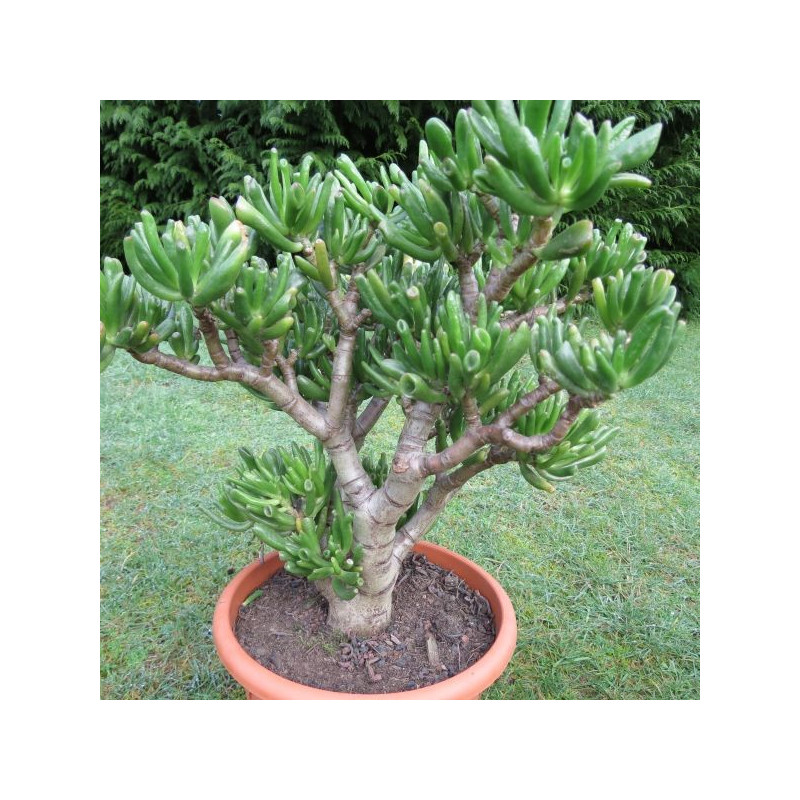
Crassula ovata 'coral Hobbit' À l'ombre des figuiers
This succulent thrives in bright, indirect light, making it ideal for placement near a sunny window or under grow lights. Adequate lighting is crucial for the plant's photosynthesis process, which directly impacts its coloration. Insufficient light can result in pale or dull leaves, while too much direct sunlight can cause sunburn and leaf damage.
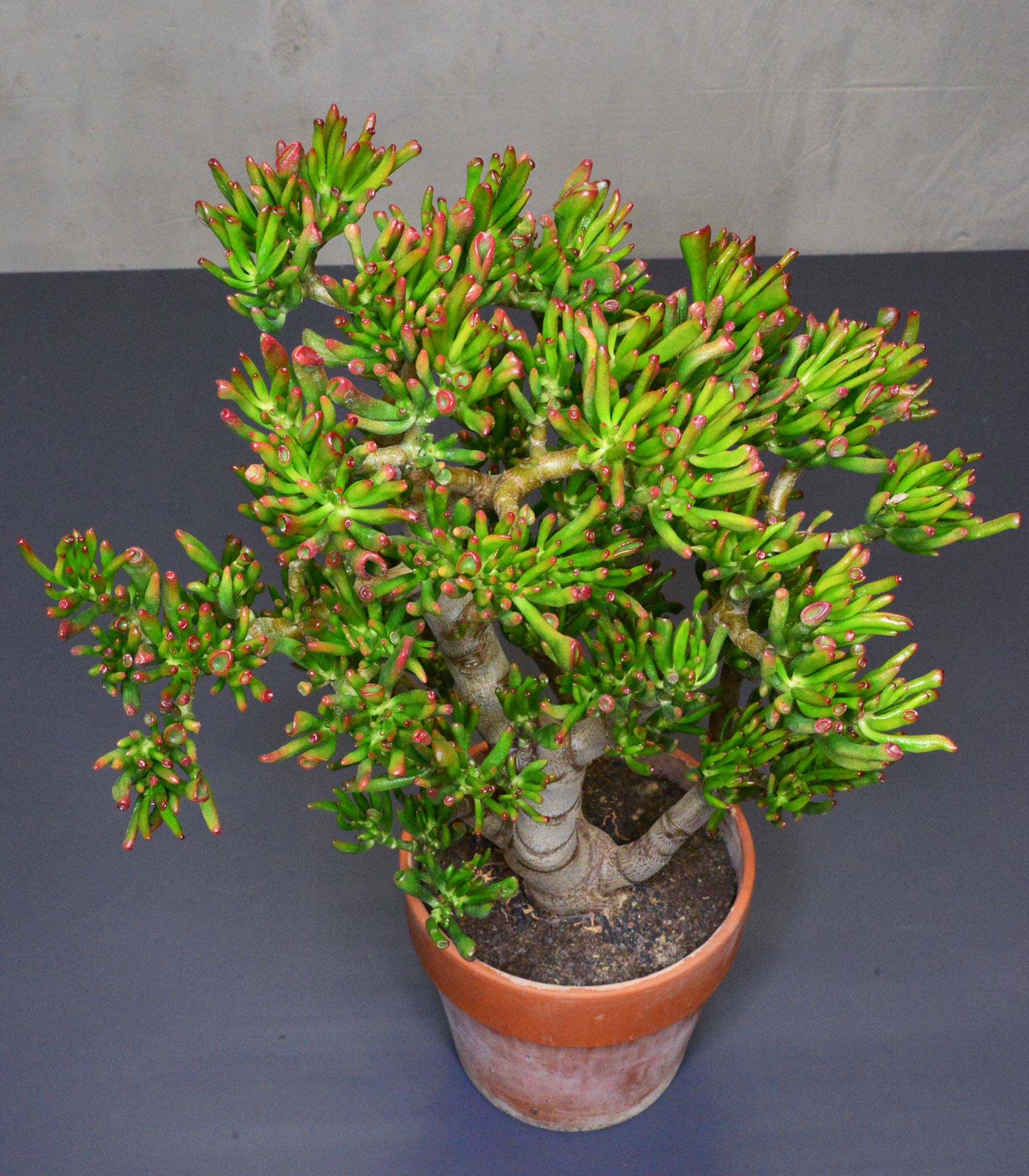
Crassula ovata ‘Coral’ Blumen Weyer
Crassula ovata Coral is an interesting succulent that has short and thick stems that branch sparsely and give rise to small but thick and tubular leaves that look like corals. The overall size of this plant remains small, not to mention that the growth rate of this plant is quite slow.
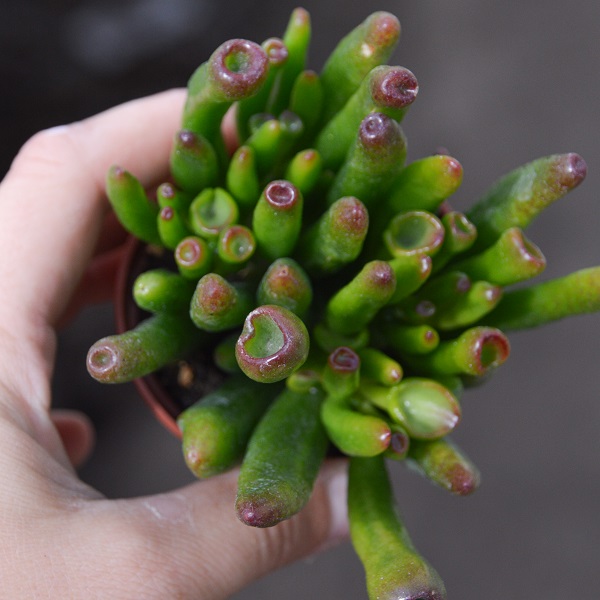
Crassula Ovata 'Coral' einfache Tipps zur Pflege Pflanzenportrait PASIORA
Crassula is a genus of about 200 accepted species of succulent plants in the family Crassulaceae.They are native to many different parts of the world. However, the species grown by succulent lovers, more than 150, are coming almost exclusively from the Eastern Cape of South Africa. Crassula ovata, commonly known as Jade Plant, is the most well-known species and probably one of the most popular.

Crassula Ovata Coral in 10cm pot succulent plant (L) Succulents, Planting succulents, Crassula
Crassula ovata, commonly known as jade plant, lucky plant, money plant or money tree, is a succulent plant with small pink or white flowers that is native to the KwaZulu-Natal and Eastern Cape provinces of South Africa, and Mozambique; it is common as a houseplant worldwide. [2]
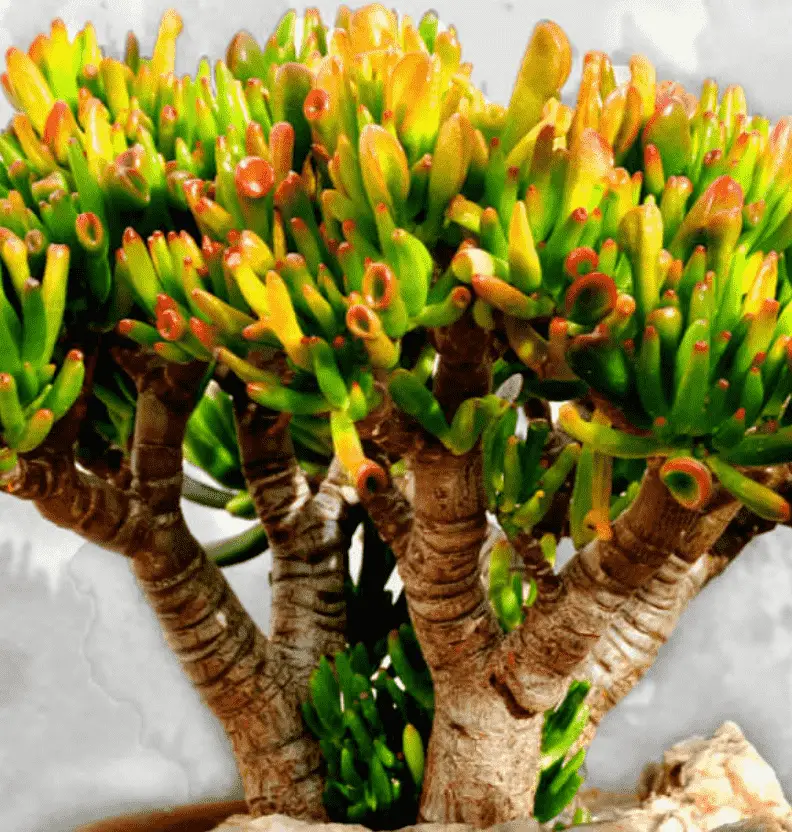
Crassula Ovata ‘Red Coral’ (Guide With Pictures) Succulents Network
Scientific Name: Crassula ovata Common Name: Jade plant, money plant, lucky plant. Origin: South Africa and Mozambique Light Requirements: Mix of direct and bright, indirect light. 4-6 hours of direct sunlight is ideal. Watering: Water thoroughly once the potting mix is dry. Soil: Equal parts potting mix and coarse sand or perlite.
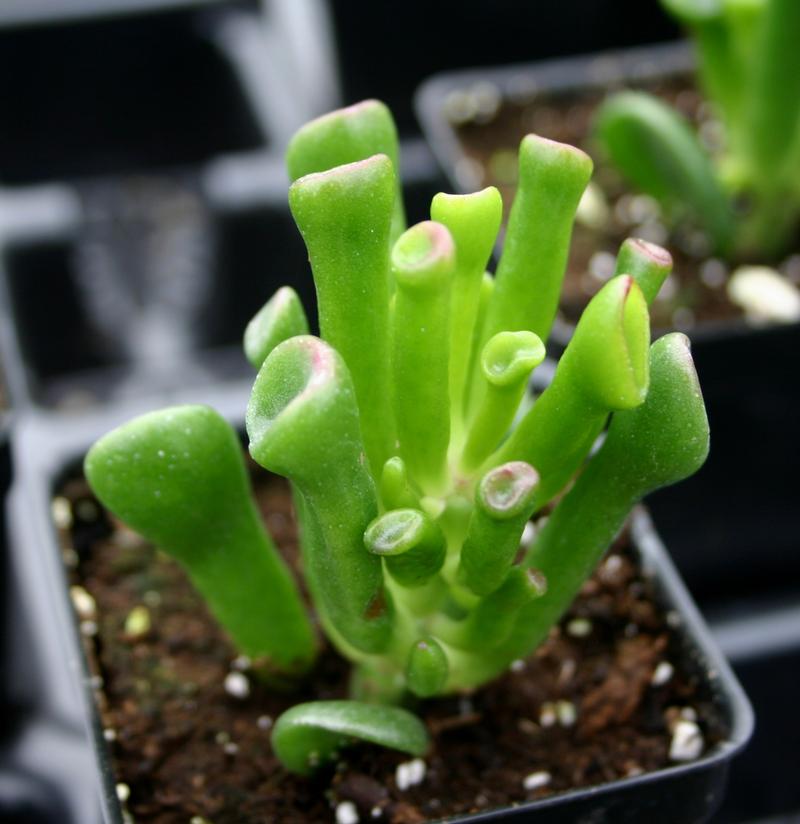
Crassula (Jade) Coral Crassula ovata Coral from Hillcrest Nursery
Crassula ovata is a compact, well-branched, and rounded succulent with oval-shaped leaves that have a dark greyish-green color. The stem of Crassula ovata is stout and its branches are stubby but well-proportioned. The leaves of Crassula ovata are 1.1-inches to 3.54-inches long (2.79cm to 8.99cm) long that have a red margin and a pointed end.
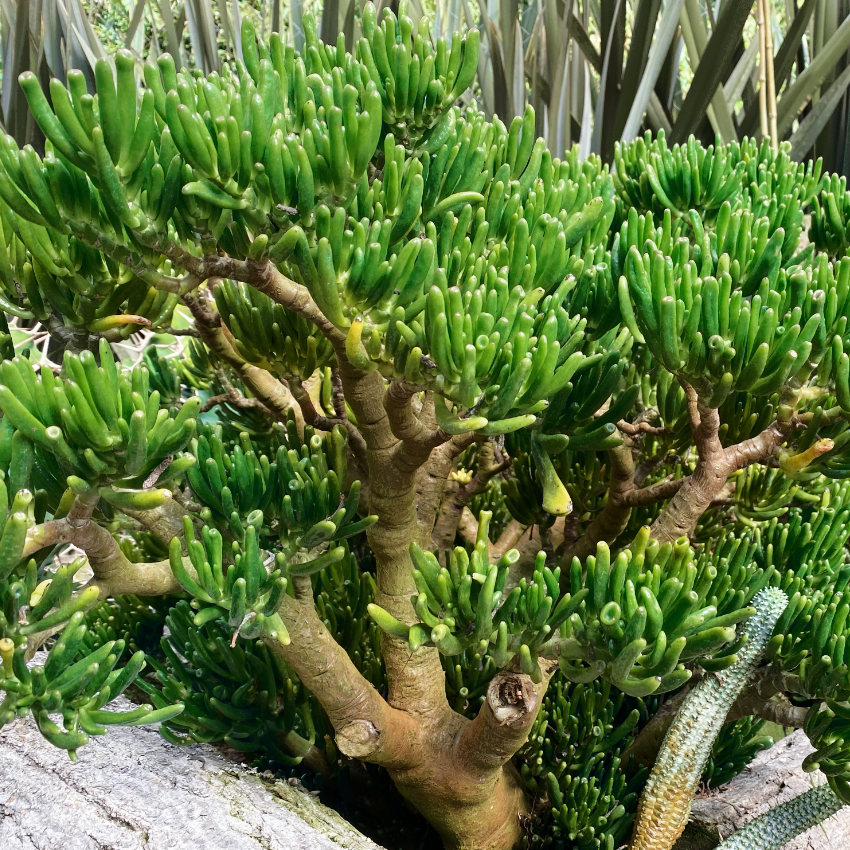
Crassula ovata ‘Coral’ Finca Drácula
Crassula ovata 'Coral' makes a perfect compliment to your succulent collection and is very easy to care for. Can be grown in sun or shade outdoors, or as a houseplant in a sunny window. Fantastic in succulent combination planters too. If kept indoors, needs very little water (allow soil to dry out thoroughly between watering).

Crassula ovata 'Red Coral' LET LOVE GROW (Succulent & Cactus)
The jade plant, Crassula ovata ( or Crassula argentea) is a succulent sub-shrub native to southern Africa. It looks rather like a bonsai tree, with jade green, fleshy leaves and thick stems that become woody with age.

Crassula Ovata Coral Planting succulents, Crassula ovata, Water garden plants
Red Coral Jade (Crassula Ovata Gollum) Red Coral Jade (Crassula Ovata Gollum) is a beautiful succulent plant that requires minimal effort to thrive. It's easy to care for, so it makes the perfect houseplant for folks with busy lives. Its vibrant green leaves are tall and oval-shaped tubular leaves, resembling coral branches - hence its name!

Crassula Ovata 'Coral' einfache Tipps zur Pflege Pflanzenportrait PASIORA
Crassula ovata is a large, much-branched, hairless and floriferous shrub from southern Africa. Commonly known as the jade plant or money plant, C. ovata has been grown as an indoor ornamental in Europe, North America, East Asia and practically worldwide for over a hundred years.It is also popular as a landscape plant in mild climates. Its popularity as an ornamental plant arises primarily from.

Plant Crassula Ovata Coral Soul Made Boutique
Gollum jade is a cultivar of the jade plant ( Crassula ovata 'Gollum') known for its tube-shaped leaves with slightly flared, trumpet-like openings that can resemble suction cups. This plant gets its name from the character Gollum in J.R.R. Tolkien's Lord of the Rings books.
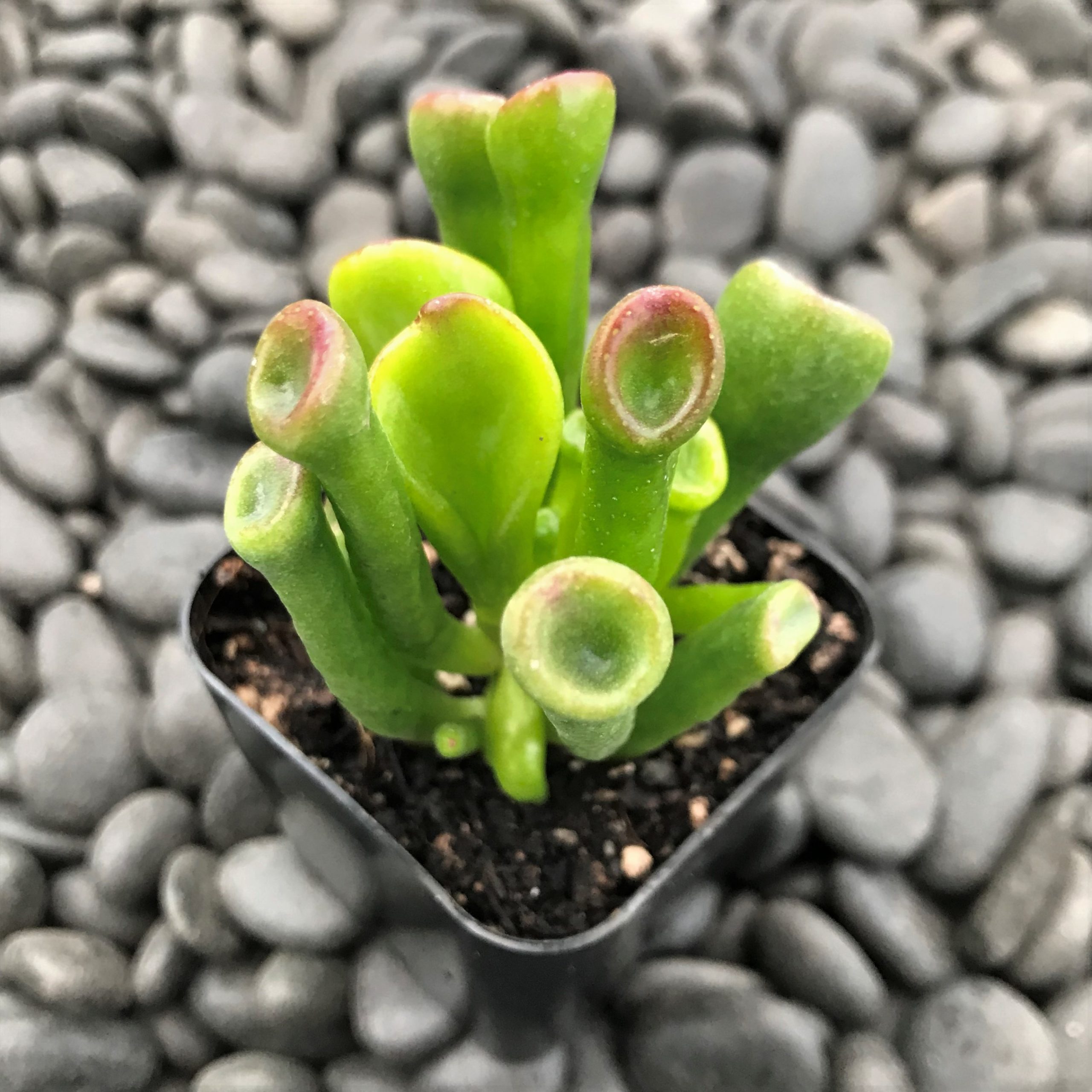
Crassula ovata 'Coral' (2" Pot) Little Prince To Go
Jade plant (Crassula ovata); photo by Marlon Co Jade plant (Crassula ovata) An important factor in determining the suitability of a plant to your home and envisioning the care it will need, is to know the origin of the plant. Plants that are native to desert regions will require substantial amount of sunlight and loose, fast-draining soil.

Crassula Ovata Coral SSE1006 Crassula ovata, Planting succulents, Cacti and succulents
01 of 30 Jade Plant (Crassula ovata) The Spruce / Leticia Almeida The most popular and widely available jade plant is the Crassula ovata. According to Feng Shui, it is believed to bring fortune and good luck into your home which has earned it a few common nicknames such as money plant, dollar plant, and lucky plant.

"bonsai" Crassula Ovata "Coral" Planting succulents, Plants, Succulents
Crassula ovata coral, also known as jade plant or money tree, can grow up to 3 feet (1 meter) tall and 2-3 feet (0.6-0.9 meters) wide, depending on the growing conditions and care. However, the growth rate of this plant is relatively slow, and it can take several years to reach this size.
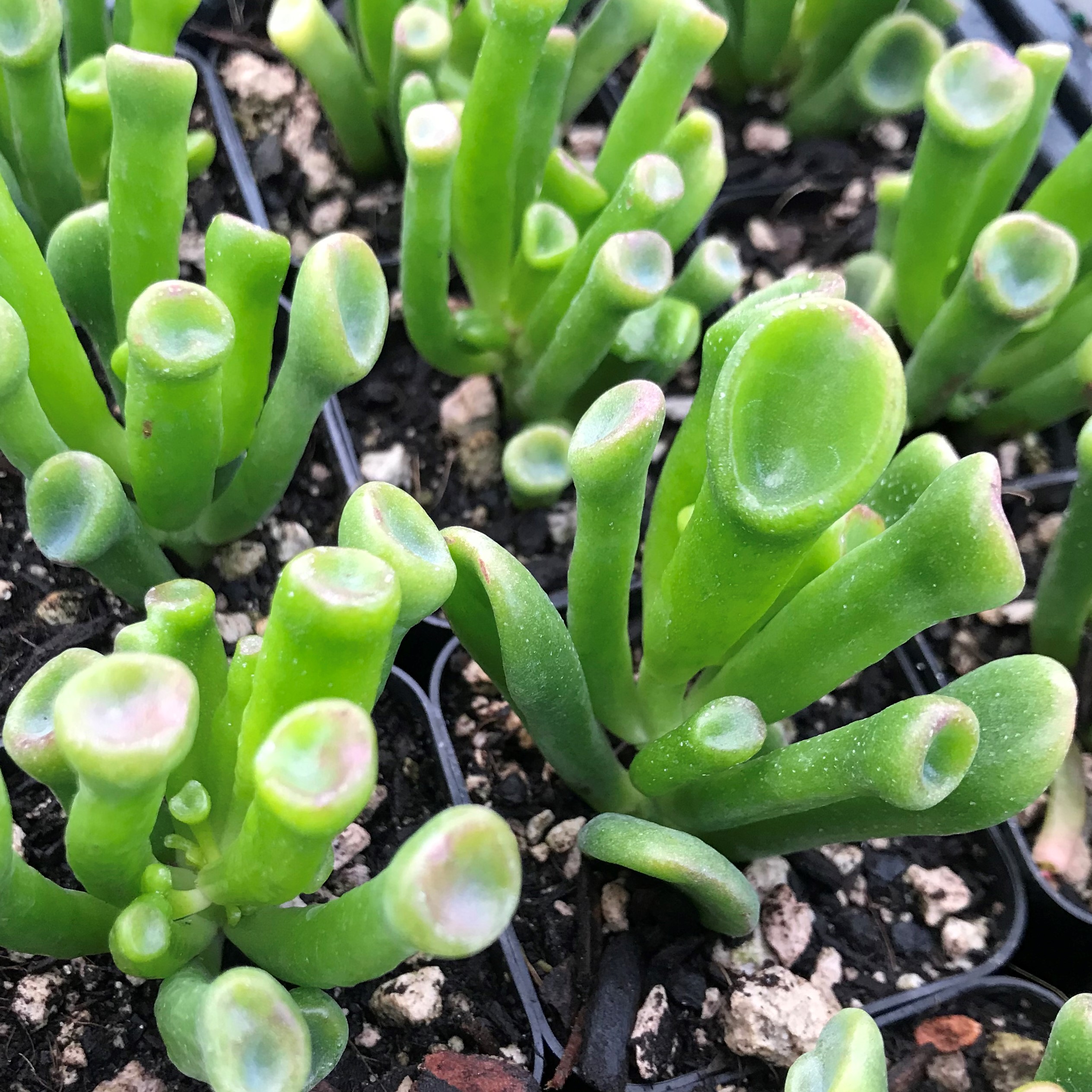
Crassula ovata 'Coral' (2" Pot) Little Prince To Go
Red coral succulents are part of the Crassula genus (the same one that the jade plant belongs to). From perennials to woody plants to shrubs, Crassula plants span 350 different species. While most of them are small (serving as container plants or ground cover), there are some larger ones that make beautiful additions to any outdoor garden. The.
